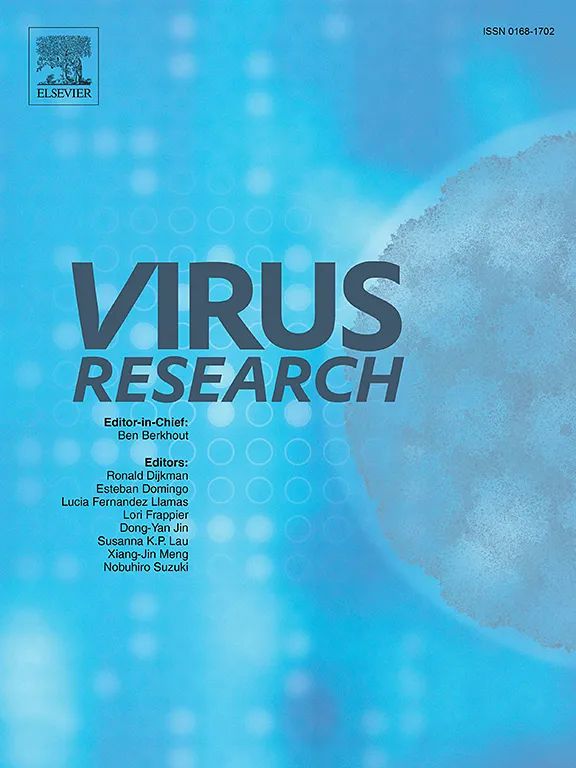在匈牙利COVID-19大流行前欧米克隆时代,COVID-19疫苗接种与住院COVID-19患者进展为严重结局之间的关系
IF 2.7
4区 医学
Q3 VIROLOGY
引用次数: 0
摘要
COVID-19疫苗可降低住院风险,但关于严重后果的数据有限。我们分析了COVID-19疫苗接种对匈牙利住院患者在欧米克隆时代之前的严重结局的影响,解决了区域知识差距。这项回顾性研究纳入了pcr确诊的2019冠状病毒病住院患者(2020年3月至2021年12月),他们被分类为未接种疫苗、初次接种疫苗或加强接种疫苗。结果包括氧疗、通气类型、ECMO和死亡,以最严重结果为主要结果,个体结果为次要指标。多元逻辑回归计算了主要结局和COVID-19疫苗接种状况的相对风险比,而逻辑回归估计了个体结局的优势比。在研究期间,因pcr确诊的COVID-19住院的7575例患者中,6420例(84.8%)未接种疫苗,1016例(13.4%)接种了一次疫苗系列,139例(1.8%)接种了加强剂量。COVID-19疫苗在12个月内将有创通气和院内死亡作为最严重结局的风险降低了50%(相对风险比[RRR]: 0.52, 95% CI: 0.30-0.89; 0.50, 95% CI: 0.41-0.61)。6个月内加强剂量降低住院死亡风险的程度相似(RRR 0.46, 95% CI: 0.30-0.72)。初次和加强疫苗接种降低了住院COVID-19患者进展为严重结局的风险。本文章由计算机程序翻译,如有差异,请以英文原文为准。
Association between COVID-19 vaccination and progression to severe outcomes in hospitalized COVID-19 patients in Hungary during the pre-Omicron era of the COVID-19 pandemic
COVID-19 vaccines reduce hospitalization risk, but data on severe outcomes are limited. We analyzed the impact of COVID-19 vaccination on severe outcomes in hospitalized patients in Hungary during the pre-Omicron era, addressing a regional knowledge gap. This retrospective study included hospitalized patients with PCR-confirmed COVID-19 (March 2020 – December 2021) who were categorized as unvaccinated, primary immunized, or booster-vaccinated. Outcomes included oxygen therapy, ventilation types, ECMO, and death, with the most severe outcome as the primary outcome and individual outcomes as secondary measures. Polytomous logistic regression calculated relative risk ratios for the primary outcome and COVID-19 vaccination status, while logistic regression estimated odds ratios for individual outcomes. During the study, 7575 patients were hospitalized with PCR-confirmed COVID-19: 6420 (84.8 %) were unvaccinated, 1016 (13.4 %) received a primary vaccination series, and 139 (1.8 %) had received a booster dose. COVID-19 vaccination reduced the risk of both invasive ventilation and in-hospital death as the most severe outcome by 50 % within 12 months (relative risk ratio [RRR]: 0.52, 95 % CI: 0.30–0.89; 0.50, 95 % CI: 0.41–0.61). Booster doses within six months decreased the risk of in-hospital death to a similar extent (RRR 0.46, 95 % CI: 0.30–0.72). Primary and booster vaccination reduced the risk of progression to severe outcomes in hospitalized COVID-19 patients.
求助全文
通过发布文献求助,成功后即可免费获取论文全文。
去求助
来源期刊

Virus research
医学-病毒学
CiteScore
9.50
自引率
2.00%
发文量
239
审稿时长
43 days
期刊介绍:
Virus Research provides a means of fast publication for original papers on fundamental research in virology. Contributions on new developments concerning virus structure, replication, pathogenesis and evolution are encouraged. These include reports describing virus morphology, the function and antigenic analysis of virus structural components, virus genome structure and expression, analysis on virus replication processes, virus evolution in connection with antiviral interventions, effects of viruses on their host cells, particularly on the immune system, and the pathogenesis of virus infections, including oncogene activation and transduction.
 求助内容:
求助内容: 应助结果提醒方式:
应助结果提醒方式:


